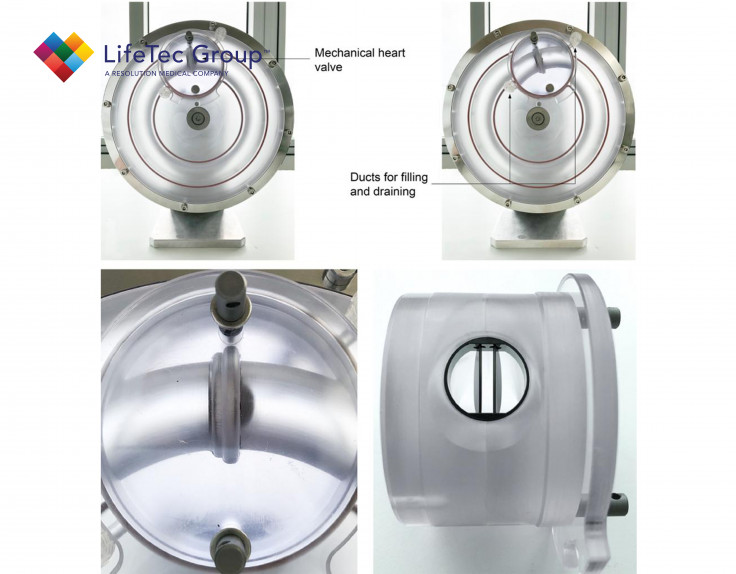Researchers at Eindhoven University of Technology and the University Medical Center Utrecht have developed a novel in-vitro flow model called MarioHeart for testing heart valve prostheses and anticoagulant therapies. The mechanical heart valve (MHV) prostheses currently used in patients require lifelong anticoagulant therapy, which poses risks of thromboembolic complications and hemorrhages. The lack of adequate in-vitro models has hindered the development of more haemocompatible MHVs and new anticoagulants.
The MarioHeart model features a single MHV within a torus, a closed-loop system, and an external control system that drives the oscillating rotational motion of the torus. By emulating a pulsatile flow similar to arterial circulation, the model provides a more realistic environment for testing heart valve prostheses. The design objectives of the model include anatomical dimensions resembling the ascending aorta and aortic annulus, low priming volume, and limited blood-contacting surface area.

The role of LifeTec Group
To verify the model's performance, experiments were conducted using a blood analogue fluid seeded with particles. High-speed video recordings and speckle tracking methods were used to assess fluid velocity and flow rate. The flow rate closely resembled physiological flow in the aortic root, and the model exhibited physiologically non-turbulent flow without blood stasis.
LifeTec Group collaborated with the researchers to develop protocols and conduct in-vitro blood tests using porcine blood. These tests were carried out to assess the thrombogenic potential of the model. Thrombi were observed on the MHV associated with the valve structures, similar to the in-vivo situation. Thrombus formation was also observed in the torus itself, so there is still room for improvement.
The MarioHeart model demonstrates promise for testing the thrombogenicity of MHVs and evaluating the potential of new anticoagulant therapies. Its simple design, realistic flow behavior, and ability to mimic physiological conditions make it a valuable tool for improving the haemocompatibility of MHVs and developing new anticoagulant strategies.
MarioHeart: Novel In-Vitro Flow Model for Testing Heart Valve Prostheses and Anticoagulant Therapie
Devos M, et al
ASAIO Journal 69(5):p e192-e198, May 2023.
DOI: https://doi.org/10.1097/mat.0000000000001915
Interested in more about what we do at LifeTec Group? Contact us!
Call at +31 40 2989393 Or e-mail us
